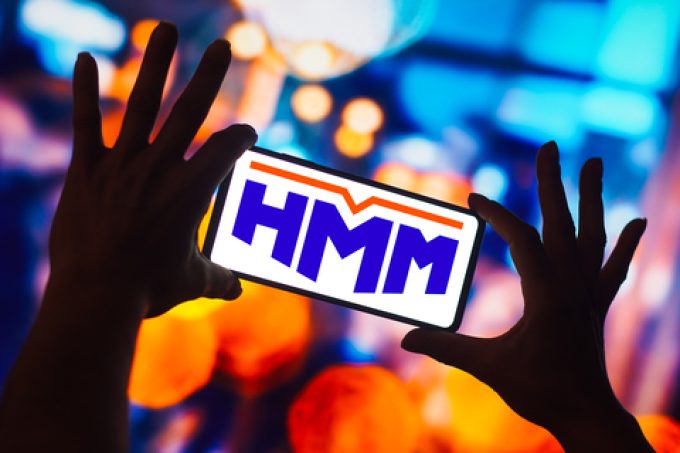Liner investors steam in as Vadhvan mega-port project takes shape
India’s Jawaharlal Nehru Port Authority (JNPA) continues to draw in potential investment commitments from the ...
MAERSK: GETTING CAUGHT DHL: AFTER RECENT STRENGTH COMES THE PAIN KNIN: NEW MULTI-YEAR LOW DSV: HAMMEREDUPS: CONSENSUS DOWN STLA: CHANGESCHRW: DOWN AND RIGHTLY SOXOM: SOLID AAPL: SUPPLY CHAIN PLANNING AAPL: INVENTORY FOCUSWMT: RESHORINGUPS: THE HANGOVERUPS: PRICING AMAZON RISKGXO: LUXURY PARTNERSHIP EXTENDEDUPS: SCS PERFORMANCEUPS: EFFICIENCY SOUGHT
MAERSK: GETTING CAUGHT DHL: AFTER RECENT STRENGTH COMES THE PAIN KNIN: NEW MULTI-YEAR LOW DSV: HAMMEREDUPS: CONSENSUS DOWN STLA: CHANGESCHRW: DOWN AND RIGHTLY SOXOM: SOLID AAPL: SUPPLY CHAIN PLANNING AAPL: INVENTORY FOCUSWMT: RESHORINGUPS: THE HANGOVERUPS: PRICING AMAZON RISKGXO: LUXURY PARTNERSHIP EXTENDEDUPS: SCS PERFORMANCEUPS: EFFICIENCY SOUGHT

South Korean state enterprise-owned shipping line HMM has this week committed to adopting electronic bills of lading (eB/Ls).
The world’s eighth-largest container carrier signed an agreement with CargoX to digitise its bills of lading, integrating them into its own customer digital platform.
Kurt Wonjun Jang, SVP of HMM Container Operation Office, said: “This new eB/L capability will enable us to deliver an enhanced service to our customers and spearhead the digitalisation of the shipping industry.”
Though commonplace in the air sector, use of eB/Ls in shipping is still relatively limited – a report from the Digital Container Shipping Association (DCSA) last month highlighted the slow response from regulators.
DCSA suggested the general ambivalence in government was likely to impair the de-risking of eB/L adoption, despite the obvious benefits, with “too much legal uncertainty… and the private sector (especially banks and insurers) wanting to take ‘the safe route’ and still rely on the traditional paper B/Ls”.
However, the DCSA report also pointed out that the government of South Korea had been one of the few relatively proactive nations securing a regulatory framework for eB/Ls.
“Korea and Singapore are two jurisdictions which made the use of the eB/L possible early… Despite these jurisdictions being frontrunners, the use of the eB/L in practice remains equally low as in other jurisdictions,” said the DCSA’s report.
Interestingly, the DCSA implied that in the case of these countries, the private sector had been too risk-averse to adopt eB/Ls. It added: “Therefore, it can be concluded that the private sector considers the conditions for eB/L usage either too restrictive or prescriptive, compared to traditional, paper-based B/Ls, and thus a barrier to the use of the eB/L.”
Efforts to take HMM private have come to nothing, following the sale of this “indispensable asset to [Korea’s] export-oriented economy” to Germany’s Hapag-Lloyd being deemed a strategic liability last year, and negotiations to sell a controlling share to Korea’s Harim Group collapsed in Q1 this year.
“We have no plan to restart sales of HMM, for now,” South Korea’s oceans minister, Kang Do-hyung, said in March. “As the company is injected with the state fund, we will set plans so that it can be operated soundly.”
Perhaps its state backing provides the de-risking necessary for HMM’s forward-thinking move on eB/Ls.
CargoX CEO Bojan Čekrlić said: “This collaboration advances global trade by implementing efficient, fast, and secure electronic bills of lading. As the logistics industry digitises, we are proud to support HMM in leading this transformation.”
Comment on this article